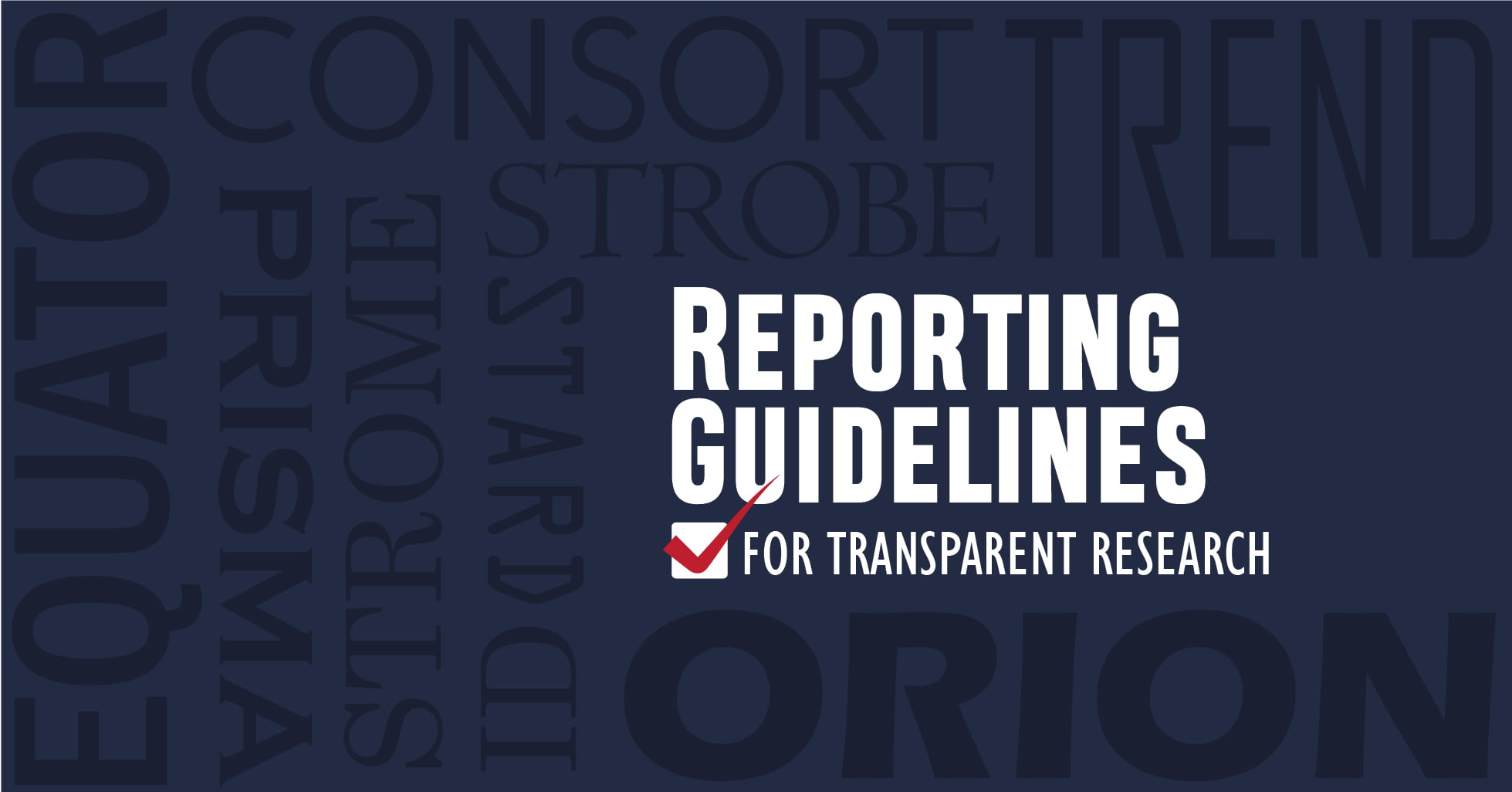 For almost every type of research design, there is an expert-created set of reporting guidelines that attempts to standardize how data is shared. Each sporting their own impressive acronym, these reporting guidelines exist to help improve the quality of research by establishing a checklist of reminders for researchers about what is essential to each research design. So get out your spoon as we dive into this alphabet soup and learn the basics of each reporting guideline statement.
For almost every type of research design, there is an expert-created set of reporting guidelines that attempts to standardize how data is shared. Each sporting their own impressive acronym, these reporting guidelines exist to help improve the quality of research by establishing a checklist of reminders for researchers about what is essential to each research design. So get out your spoon as we dive into this alphabet soup and learn the basics of each reporting guideline statement.
One of the tenets of modern science is the importance of transparency in reporting. It is particularly important in research that has to do with human health, as the quality of research and results can have a direct impact on human life. In a nutshell, transparency refers to the open access of the audience to the author's data, reasoning, challenges, methods, and results. This openness allows the reader to understand each step of the research, as well as generalize those findings to other scenarios, and even replicate those findings on their own.
To ensure transparency, expert researchers have worked together to make guidelines for each type of research design. Many academic journals have adopted these guidelines as an important part of their manuscript submission requirements, with some even requiring submission of the completed checklists. Here they are, with a quick description and link to the guidelines:
CONSORT: Consolidated Standards of Reporting (randomized control) Trials
TREND: Transparent Reporting of Evaluations with Nonrandomized Designs
STROBE and STROME-ID: STrengthening the Reporting of OBservational studies in Epidemiology/Molecular Epidemiology in Infectious Diseases (includes cohort, case control, and cross-section studies)
PRISMA: Preferred Reporting Items for Systematic Reviews and Meta-Analyses
STARD: Standards for Reporting of Diagnostic Accuracy Studies
CHEERS: Consolidated Health Economic Evaluation Reporting Standards
ORION: Outbreak Reports and Intervention studies Of Nosocomial infection
And one community to unite them all:
EQUATOR: Enhancing the QUAlity and Transparency Of health Research
The guidelines, while helpful and representing the ideals in research reporting, are not universally required by academic journals, conferences, or other publishers. Some are of the opinion that the guidelines are not followed or enforced enough to make them a requirement. Others believe that they impose an unfair burden on researchers with smaller budgets or limited resources. Still others believe that these guidelines would stifle research publication by permitting only the best-reported studies to achieve publication. However, the guidelines so closely support the scientific method and evidence-based decision-making, that it would seem these guidelines (and their acronyms) are here to stay.


